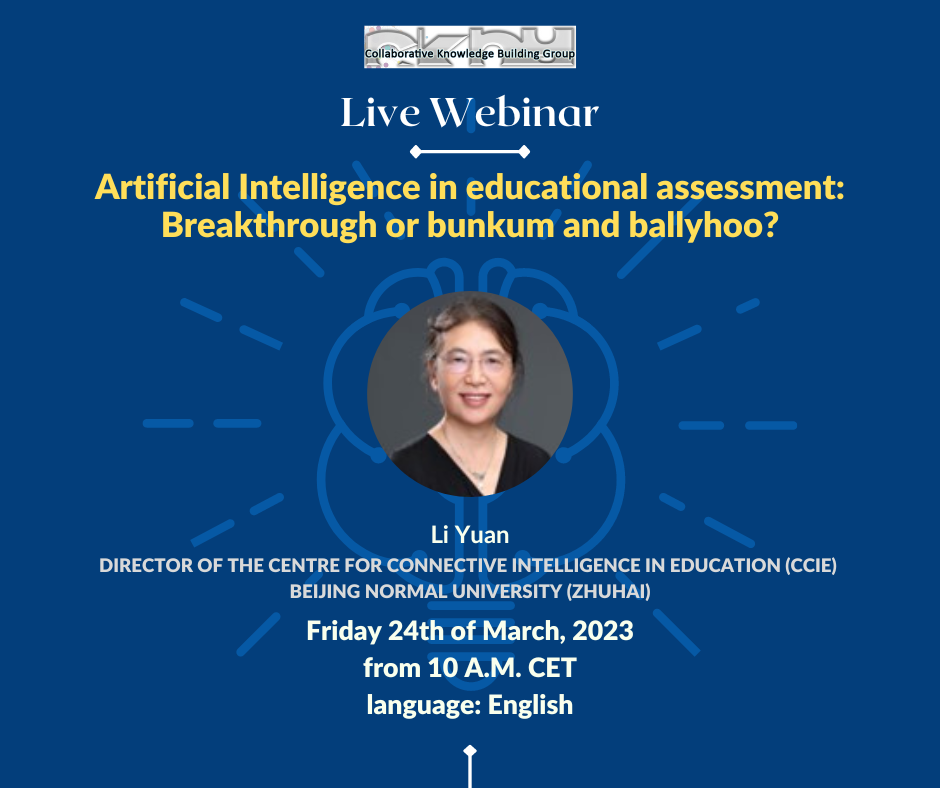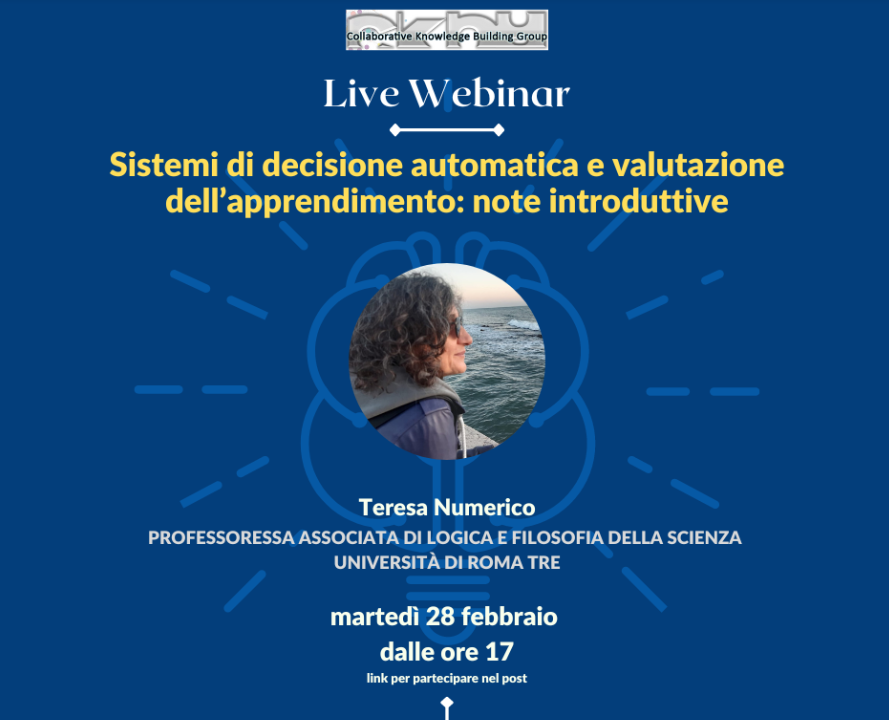The new developments in Artificial Intelligence-related educational assessment are attracting increasing interest as means of improving assessment efficacy and validity, with much attention focusing on the analysis of the large volumes of process data being captured from digital assessment contexts. In evaluating the state of play of Artificial Intelligence in formative and summative educational assessment, in this seminar, we will look at AI and machine learning in Automated Essay Scoring (AES) and Computerised Adaptive Testing (CAT), Learning Analytics and the latest discussions on ChatGPT and education. I will offer a critical perspective on AI and machine learning in assessing higher order learning and address two key questions:
1) Can we address explainability, reliability, bias, accountability and trust issues when developing and using AI in assessment?
2) Given that AI, e.g ChatGPT, is capable of processing information accurately, efficiently, systematically, how should we use AI in assessment for deep engagement and deep learning?
Yuan Li is Professor at the College of Education for the Future at Beijing Normal University Zhuhai Campus and Senior Researcher in AIED at the Digital Education Innovation Lab, University of Cambridge University. For the last 20 years, Professor Yuan has worked in the UK, including University of Cambridge, University of Bolton and University of Belfast and Cetis (a National Innovation Support Centre for UK Higher Education), researching and investigating the impact of technology in education and supporting innovative use of digital technology in teaching and learning. She led and was involved in a number of large technology enhanced learning and educational future projects in Europe, including “TEL-Map”, “LACE” and “RAGE” etc. Her main research interests include: Artificial Intelligence and Future Education; Learning Analytics and Educational Assessment, and Online/Blended Learning.
Chair: Donatella Persico
Il tema dell’Intelligenza Artificiale e del suo impiego nelle pratiche educative sta animando il dibattito pubblico e scientifico.
Ma cosa si intende con il termine IA?
Quali applicazioni potrebbe avere nell’apprendimento e nella sua valutazione?
Queste sono alcune domande che guideranno il live webinar “Sistemi di decisione automatica e valutazione dell’apprendimento: note introduttive” tenuto da Teresa Numerico, professoressa associata di Logica e Filosofia della Scienza all’Università di Roma Tre. Si occupa di filosofia della tecnologia, politica dell’intelligenza artificiale, nuova epistemologia delle scienze umane e sociali a contatto con la trasformazione digitale. Ha pubblicato articoli su diverse riviste internazionali. Tra i suoi libri: Alan Turing e l’intelligenza delle macchine (FrancoAngeli, 2005), Web Dragons (con M. Gori e I. Witten; Morgan Kaufmann, 2007), L’umanista digitale (con D. Fiormonte e F. Tomasi; Il Mulino, 2010; trad. ingl. rivista, The digital humanist; Punctum Books, 2016) e Big Data e Algoritmi (Carocci, 2021).
Chair: Beatrice Ligorio

